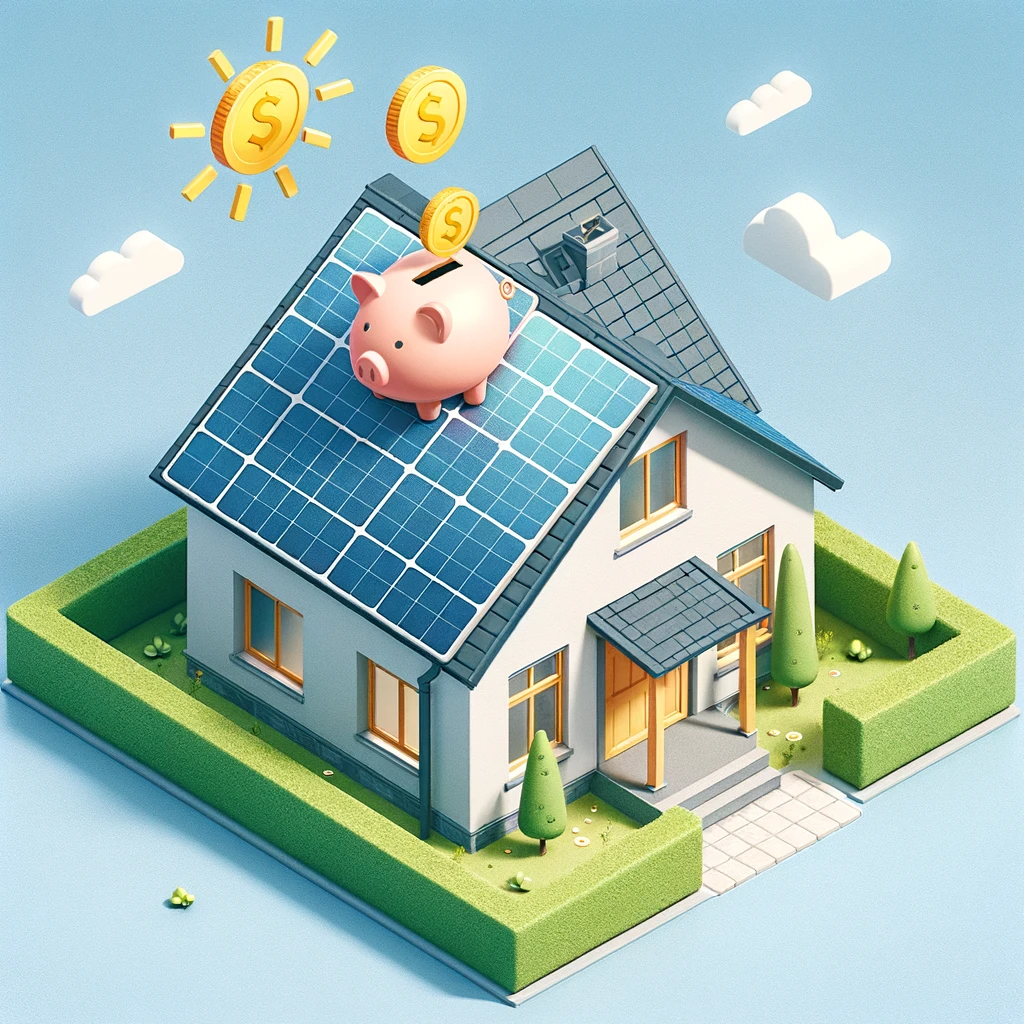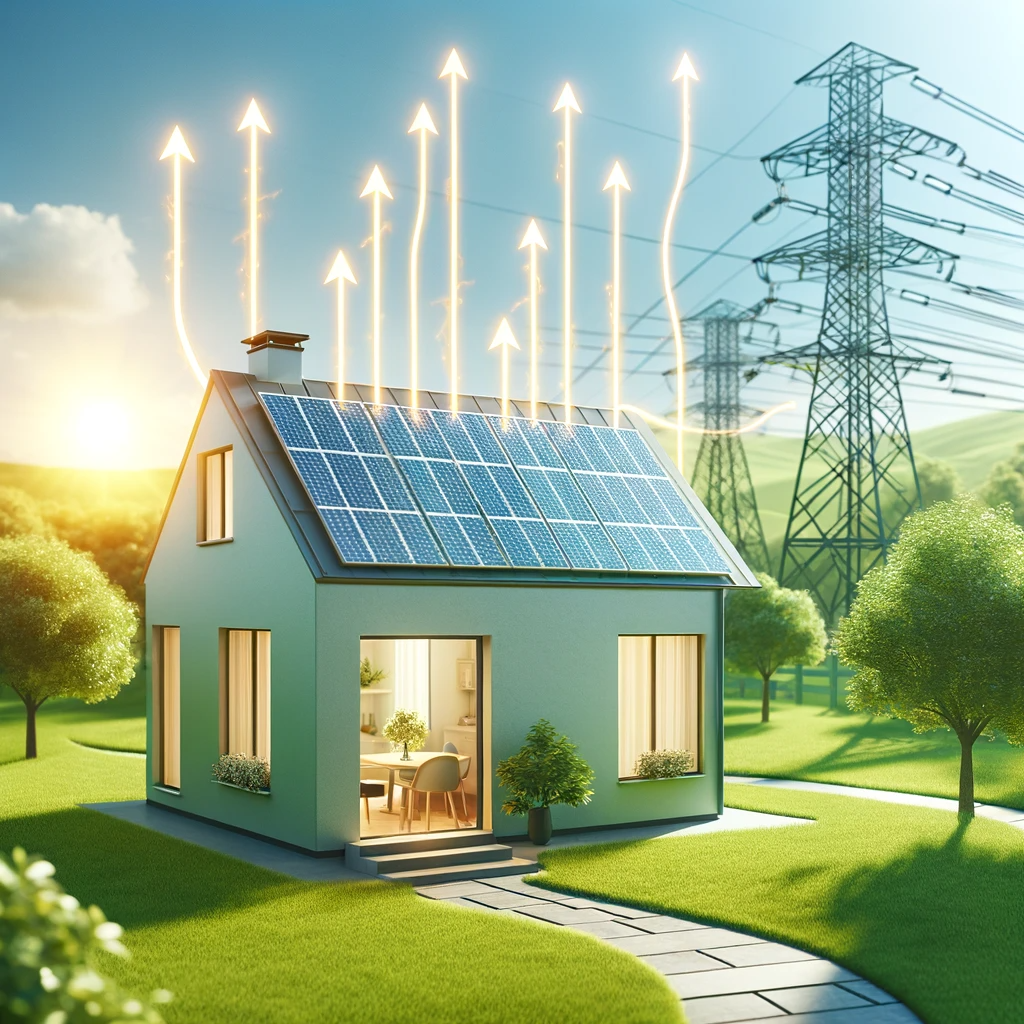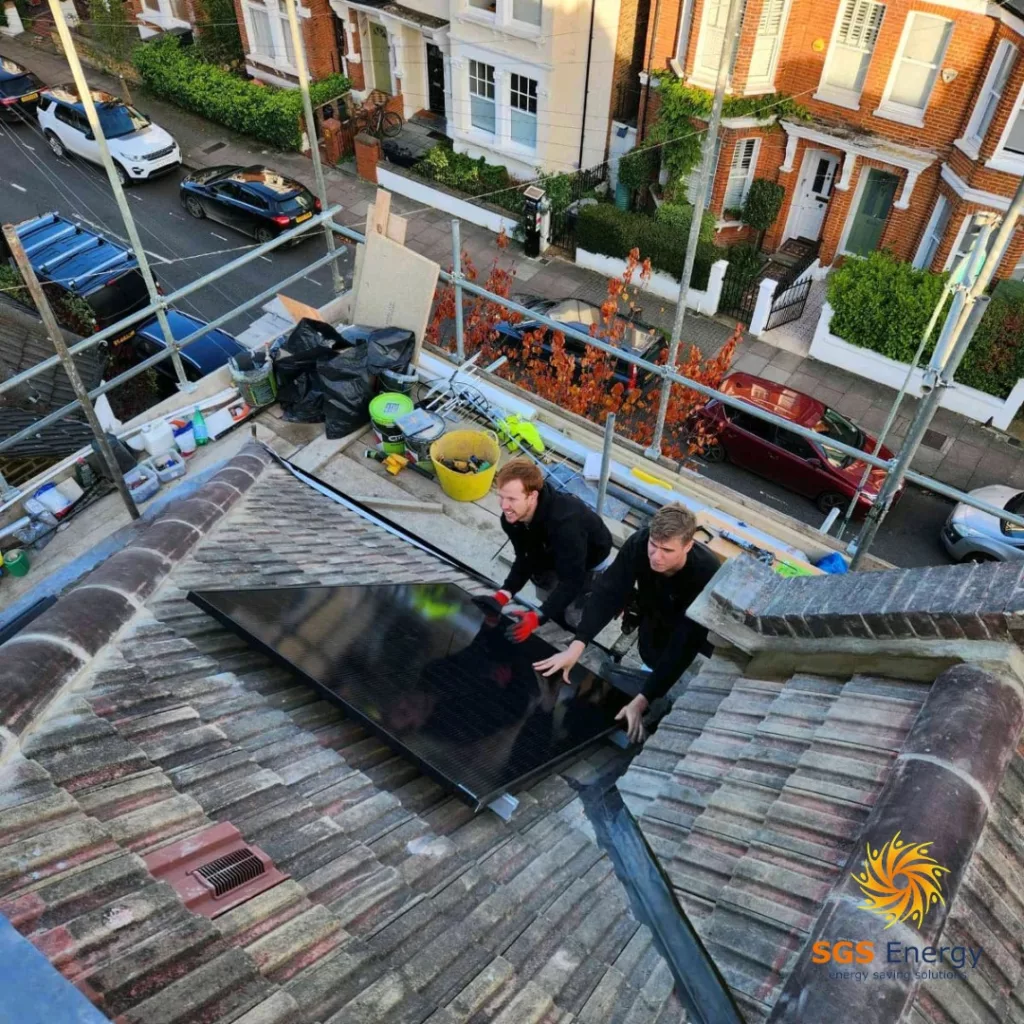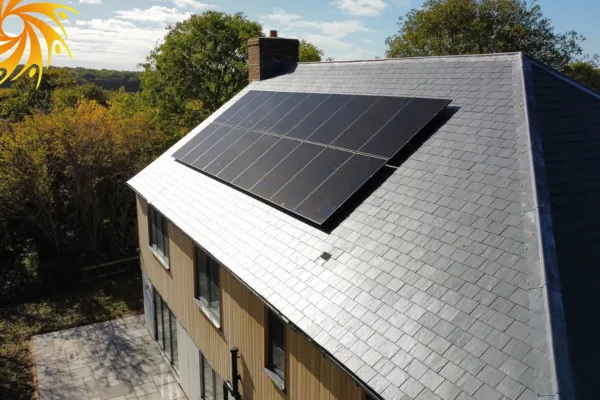Unsurprisingly, solar panels for homes are gaining popularity as a sustainable and renewable energy source, contributing to a cleaner planet. However, a significant challenge arises from the excess electricity these panels produce, often going to waste. This article explores the solution of selling power back to the grid, utilising innovative solar technology and government schemes like the Smart Export Guarantee (SEG) to ensure no clean energy is wasted.

Table of Contents
Solar Energy and the Potential for Unused Electricity
Solar energy has emerged as a promising alternative to non-renewable energy sources, with photovoltaic systems (PV) harnessing the sun’s energy efficiently. Despite the advancements, excess electricity is often generated, prompting the need for effective solutions.
Storing excess electricity in solar batteries or selling it back to the grid through programs like SEG addresses this issue. The advancements in solar panel technology, coupled with government incentives, contribute to making solar energy more accessible and cost-effective for homeowners.
How Does It Work?
- Eligibility: To participate, your solar panel installation must be certified, and you need a meter capable of tracking the electricity exported to the grid.
- Export Tariffs: Once part of the SEG, you’ll be paid for each unit kWh (kilowatt-hour) of electricity you export. These tariffs are set by your energy supplier and can be either fixed or variable.
- Earnings: Your earnings depend on the amount of surplus electricity you generate and the tariff rate offered by your supplier.

Benefits:
- Reduce Energy Bills: By generating your own electricity, you reduce the amount you need to purchase from the grid, leading to lower energy bills.
- Earn Extra Income: The SEG scheme turns your solar panels into a source of income, as you’re paid for the excess electricity exported.
- Contribute to a Greener Future: By participating, you’re actively contributing to the reduction of carbon emissions.
What Happens to Unused Electricity?
Excess electricity generated by solar panels can be utilised in various ways, such as storing it in batteries, feeding it back into the grid through net metering, using it to power the home, or even donating it to charity. This excess energy, when fed back into the grid, becomes a valuable resource that benefits other homes and businesses, reducing reliance on non-renewable sources.
Selling Solar Electricity Back to the Grid in the UK
The SEG scheme, initiated by the UK government in 2019, allows homeowners with solar panels to receive payments for excess energy sent back to the grid. The process is straightforward: solar panel owners can either store or sell their excess energy, and energy suppliers pay a set tariff rate per unit of electricity received. Consulting with a professional solar installer is recommended for a seamless setup.
Potential Earnings

Homeowners in the UK can potentially earn between £80 – £165 annually by selling solar power back to the grid. The exact amount varies based on the system’s size and the tariffs offered by energy suppliers. This additional income not only reduces household bills but also enhances the return on the initial solar panel investment.
Understanding the Smart Export Guarantee (SEG)
The SEG is a government initiative allowing individuals and businesses with renewable energy sources to sell excess electricity back to the grid. The scheme works by certifying solar panel installations and paying participants for each unit of electricity exported, offering financial rewards while contributing to a greener environment.
Since January 2020, the SEG scheme has allowed small-scale low-carbon energy generators to sell various types of renewable energy, including solar, back to the grid.
Meeting specific criteria, such as system capacity and certification, is essential for participation. Currently, the SEG requires your solar panels to be under 5MW capacity and you must have an MSC certificate for installation.
Storing VS Selling Unused Solar Electricity?
Both options – storing in batteries or selling back to the grid – offer benefits. Storing can lead to cost savings, increased energy independence, reduced carbon emissions, and improved efficiency. On the other hand, selling unused electricity can earn homeowners money, further reducing carbon emissions and contributing to grid stability.
How do you Maximise your Solar Panel Renewable Energy?
To optimise solar panel installations, ensure correct placement, regular cleaning, and invest in a solar battery for storing excess energy. Monitoring system performance, choosing a reputable solar partner, and conducting an energy audit before installation are crucial steps.
Choosing an Energy Supplier
Selecting the right energy supplier is crucial for maximizing SEG benefits. Rates can vary and are ever-increasing, so regularly comparing offers is advisable to ensure optimal financial gains.
Ready to Have Solar Panels Installed?

Investing in solar panels is not just about powering your home sustainably; it’s also an opportunity to contribute positively to the environment while receiving financial rewards. The Smart Export Guarantee makes this possible, turning your home into a mini green power station.
Ready to embrace a sustainable and cost-effective energy future for your home or business? SGS Energy is your go-to expert for solar panel installation. With our commitment to quality, tailored solutions, and exceptional customer service, we help you harness the power of the sun efficiently. Unlock the potential of renewable energy and start your journey towards energy independence and lower utility bills today. Contact the team at SGS Energy to learn more and request a quote for your solar panel energy solution.
Frequently asked questions
What is the price per kWh for selling solar back to the grid?
There is no set tariff per kWh for solar energy, as tariffs are set by individual suppliers (SEG licensees). The licensee will decide what tariff to offer, which can be fixed or variable. You can find out more about suppliers and their tariffs through Ofgem.
Can I sell Solar to my neighbours?
No, at the moment, the only option for homeowners is to sell excess solar energy back to the grid or store it using battery storage for future use.
Are there special requirements to sell energy through SEG?
Yes, The SEG requires your solar panels to be under 5MW capacity and you must have an MSC certificate for installation.
Enjoyed this article?
Find out more about our renewable energy solutions on our blog or follow us on facebook for all of our latest news and updates.
You might also like:


